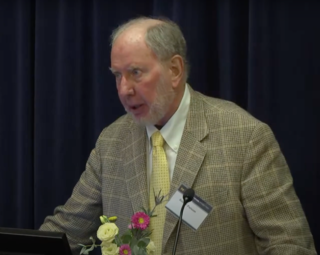A Quote by Thomas Malthus
It is also very important to observe, that menial servants are absolutely necessary to make the resources of the higher and middle classes of society efficient in the demand for material products.
Related Quotes
For loving, working, and creative people to throw off the yoke of power it is necessary to abolish power itself, not merely to make the yoke comfortable. Where some have power, others do not, and the two classes persist. A free society is where all have power-power over and responsibility for their own lives, power and reason to respect the lives of others. This is also a society without classes, a society of human beings, not rulers and the ruled.
A very large part of English middle-class education is devoted to the training of servants...In so far as it is, by definition, the training of upper servants, it includes, of course, the instilling of that kind of confidence which will enable the upper servants to supervise and direct the lower servants.
The contemporary tendency in our society is to base our distribution on scarcity, which has vanished, and to compress our abundance into the overfed mouths of the middle and upper classes until they gag with superfluity. If democracy is to have breadth of meaning, it is necessary to adjust this inequity. It is not only moral, but it is also intelligent. We are wasting and degrading human life by clinging to archaic thinking.
Actually, the inability of any society to resist immigration, the inability to find other solutions to the problem of employment at the lower, more physical, and menial levels of the economic process, is a serious weakness, and possibly even a fatal one, in any national society. The fully healthy society would find ways to meet those needs out of its own resources.
Money is only important in a society when certain resources for survival must be rationed and the people accept money as an exchange medium for the scarce resources. Money is a social convention, an agreement if you will. It is neither a natural resource nor does it represent one. It is not necessary for survival unless we have been conditioned to accept it as such.
I'm a very big proponent of cloud. We've used it a lot in private sector, and as far as we can tell, it is not only more efficient, it's probably also more secure for lots of very complicated technical reasons. I think it's a very important thing for government to do, and also to have systems that talk to each other.
A society that relies on generalized reciprocity is more efficient than a distrustful society, for the same reason that money is more efficient than barter. Trust lubricates social life. Networks of civic engagement also facilitate coordination and communication and amplify information about the trustworthiness of other individuals.
It is not the ownership of the instruments of production which it is important for the State to assume. If the State is able to determine the aggregate amount of resources devoted to augmenting the instruments and the basic rate of reward to those who own them, it will have accomplished all that is necessary. Moreover, the necessary measures of socialization can be introduced gradually and without a break in the general traditions of society.
Successful companies create value by providing products or services their customers value more highly than available alternatives. They do this while consuming fewer resources, leaving more resources available to satisfy other needs in society. Value creation involves making people's lives better. It is contributing to prosperity in society.




































